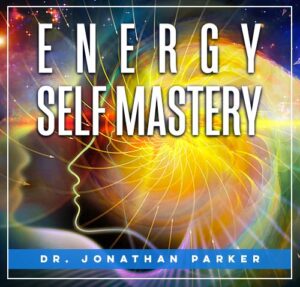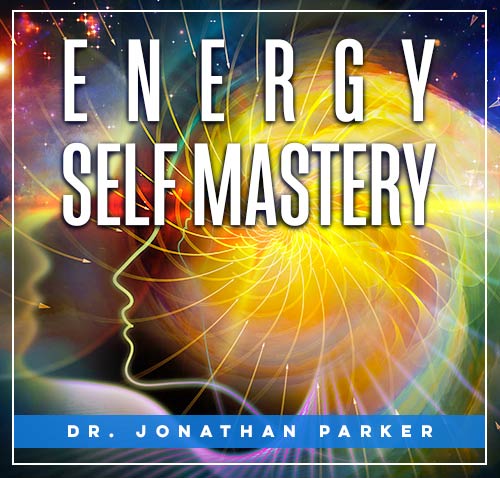How To Use Meditation To Align Your Energy Centers

Looking for more amazing products? Check out our online store and explore our collection here! Happy shopping!
Before diving in, please note: This post is for informational purposes only. If you’d like to know more about how we approach topics, feel free to check out our friendly Disclaimer Page.
Hey there, amazing readers! 
We’re committed to delivering quality posts, and your support (even just sticking around despite the ads) means everything to us. So, bear with us, and thanks for helping us keep the good vibes rolling. Now, on to the fun stuff!
TRANSLATE BUTTON AT THE END OF THE ARTICLE
A Quick Overview
Meditation serves as a powerful tool for not just relaxation but also for aligning our energy centers, or chakras.
These are the spinning wheels of energy that govern various physical, emotional, and spiritual aspects of our lives.
By understanding how to tap into this energy through meditation, we can experience profound shifts in our wellbeing.
In this article, I’ll guide you through the steps and practices that will help you align your energy centers effectively.
Let’s dive in!
Understanding Energy Centers: The Basics You Need to Know
Energy centers, often referred to as chakras, are focal points in our bodies that correspond to different aspects of our being.
There are seven main chakras, each linked with specific physical, emotional, and spiritual elements.
Root Chakra: Located at the base of the spine, it connects us to the earth and governs our sense of stability and security.
Sacral Chakra: Situated just below the navel, it influences our creativity and emotions.
Solar Plexus Chakra: Found in the upper abdomen, it’s about our personal power and confidence.
Heart Chakra: Located in the center of the chest, it embodies love and compassion.
Throat Chakra: This is where our ability to communicate arises, sitting at the throat.
Third Eye Chakra: Found between the eyebrows, it enhances intuition and perception.
Crown Chakra: At the top of the head, it connects us to higher consciousness.
These energy centers can become blocked or misaligned due to stress, negative emotions, or unhealthy lifestyle choices.
So, understanding them is the first step.
With a little awareness, we can start to work on them, allowing our energy to flow freely.
Benefits of Aligning Your Energy Centers Through Meditation
Aligning your energy centers through meditation can bring about a host of benefits.
Here’s why you might want to make it a part of your routine:
Improved Emotional Wellbeing: By identifying and releasing blocked energy, you may find a smoother emotional state.
Fewer mood swings?
Yes, please!
Enhanced Physical Health: Balanced chakras can often lead to fewer physical ailments.
Who wouldn’t want a boost in their immune system?
Increased Clarity and Focus: Meditation helps clear mental fog, allowing you to be more present and productive throughout your day.
Better Relationships: When you are in tune with your heart chakra, you can foster deeper connections with others.
Love is a two-way street!
More Creativity: Tapping into your sacral chakra can unleash your creative side.
You might just find a new hobby or passion project.
Stronger Intuition: A balanced third eye chakra can lead to sharper intuition.
Master your Energy and Awaken Your Spirit – start your journey here.

Trusting your gut becomes a little easier.
Spiritual Growth: Aligning your chakras can enhance your spiritual practice, allowing for deeper connections to your higher self.
Stress Relief: Regular meditation lowers cortisol levels, which means less stress.
Who doesn’t want that?
Sense of Purpose: Connecting with your crown chakra can help clarify your life’s mission or purpose.
Heightened Awareness: You become more aware of your body, emotions, and energy levels, leading to a more mindful existence.
When I first began my meditation journey, I noticed a difference in my mood and energy levels within weeks.
It was almost like moving from a black-and-white movie to full Technicolor!
Creating a Cozy Space for Your Meditation Practice
Your environment plays a crucial role in your meditation practice.
A comfortable, inviting space can help you settle in and focus.
Here are some tips to create your ideal meditation nook:
Choose a Quiet Spot: Find a corner in your home where you won’t be disturbed.
This could be as simple as a chair in a cozy room or a spot on the floor with a mat.
Add Soft Lighting: Whether it’s a candle, a lamp with warm light, or even fairy lights, soft lighting can create a calming atmosphere.
Incorporate Nature: Plants or natural elements like crystals can help you feel grounded and connected.
Use Cushions or Blankets: Comfort is key!
Use cushions or a soft blanket to make your space inviting.
Personal Touches: Add items that resonate with you, such as pictures, quotes, or meaningful objects.
Surround yourself with what you love.
Scent Matters: Consider using essential oils or incense to create a soothing aroma that enhances your meditation experience.
Minimize Clutter: A tidy space can promote a clearer mind.
Take a moment to organize before you start your session.
Sound Setup: If you enjoy calming music or nature sounds, have that ready to go.
A gentle sound can enhance your focus.
Adjust for Temperature: Make sure your space is comfortable—not too hot or cold—so you can focus entirely on your practice.
Time it Right: Designate this space as your “meditation zone.” The more you use it, the more it becomes associated with your practice.
Creating a cozy meditation space is like crafting your little sanctuary.
It invites peace and relaxation, making it easier to slip into that meditative state.
Essential Tools: What You Need for Effective Meditation
While you don’t need much to meditate effectively, there are a few tools that can enhance your experience.
Here are some essentials to consider:
Meditation Cushion or Mat: A comfortable place to sit can make all the difference.
Cushions provide support for longer sessions.
Timer: This helps you avoid glancing at the clock.
I love using my phone’s timer with a gentle chime to signal the end of my meditation.
Journal: Writing down your experiences can deepen your practice.
Document any insights or feelings that arise during meditation.
Meditation Apps: There are plenty of apps available that offer guided meditations and soothing sounds.
Essential Oils: Scents like lavender or sandalwood can help calm your mind and create a cozy atmosphere.
Crystals: Some people find that crystals, like amethyst or rose quartz, can enhance their energy alignment.
Chimes or Bells: These can be soothing to listen to and also mark the end of your meditation session.
Blanket: If you tend to get chilly, keep a soft blanket nearby to stay warm and comfortable.
Eye Mask: Sometimes, blocking out light can help you focus better.
An eye mask can create a cozy, dark space.
Water: Hydration is important!
Keep a glass of water nearby to sip on after your practice.
These tools can be simple yet effective companions on your meditation journey.
They help create an environment that is conducive to focusing on aligning your energy centers.
Finding the Right Time: When to Meditate for Best Results
Timing can significantly impact the effectiveness of your meditation practice.
Here are some tips to find your perfect meditation windows:
Morning Meditation: Starting your day with meditation can set a positive tone.
Master your Energy and Awaken Your Spirit – start your journey here.

It’s a great way to align your energy before diving into responsibilities.
Midday Break: If you find your energy dipping in the afternoon, a quick meditation session can help recharge your batteries.
Evening Wind Down: Meditating in the evening can help you unwind, release the day’s stresses, and prepare for restful sleep.
Listen to Your Body: Pay attention to when you feel most receptive.
Some people thrive in the morning; others may find evening meditations more beneficial.
Consistency is Key: Whatever time you choose, try to stick to it.
Consistency helps your body recognize when it’s time to meditate.
Avoid Busy Times: Steer clear of times when you know you’ll be distracted or rushed.
Meditation thrives in moments of stillness.
Experiment: Don’t be afraid to try different times to see what works best for you.
Each phase of life may call for a different approach.
Set a Routine: Establish a ritual around your meditation time.
This can include lighting a candle or playing soft music, signaling it’s time to focus.
Use Natural Cues: If you notice a particular time of day when you feel more stressed or overwhelmed, that’s a great indicator for when to meditate.
Be Flexible: Life happens!
If you miss your usual time, don’t stress.
Just find another moment in your day to practice.
Once I found my perfect morning routine, I noticed how much more centered I felt throughout the day.
It’s like giving yourself a gift every morning!
Simple Breathing Techniques to Start Your Meditation
Breathing is a fundamental aspect of meditation.
It helps ground you and align your energy centers.
Here are some breathing techniques to kickstart your practice:
Deep Belly Breathing: Inhale deeply through your nose, letting your belly expand, then exhale slowly through your mouth.
This relaxes the body and calms the mind.
Box Breathing: Inhale for four counts, hold for four, exhale for four, and hold for another four.
This structured rhythm can enhance focus.
Alternate Nostril Breathing: Close one nostril with your thumb, inhale through the other, close it, and exhale through the first.
This technique balances the left and right energy channels.
4-7-8 Breathing: Inhale for four counts, hold for seven, and exhale for eight.
This technique is known for promoting relaxation.
Humming Bee Breath: Inhale deeply, then hum as you exhale.
The vibrations can create a calming effect and help with focus.
Ocean Breathing: Inhale deeply and then exhale while making a “ha” sound, reminiscent of ocean waves.
This can be soothing and grounding.
Counted Breathing: Count each breath, focusing on the numbers.
This technique can enhance concentration and keep your mind from wandering.
Sipping Breath: Inhale in small sips, like you’re sipping through a straw, then exhale slowly.
This can help with focus and calming the nervous system.
Mindful Breathing: Simply sit quietly and focus on your natural breath.
Don’t try to change it; just observe.
A great way to bring awareness to the present.
Body Scan with Breath: As you breathe, mentally scan your body from head to toe, relaxing each area as you exhale.
Integrating these breathing techniques into your meditation practice can make a significant difference.
They help you connect with your body and align your energy effortlessly.
Visualizing Energy Centers: A Fun and Engaging Method
One of the most engaging ways to align your energy centers is through visualization.
It adds an extra layer to your meditation.
Here’s how to effectively visualize your chakras:
Sit Comfortably: Find a quiet space and settle into a comfortable position.
Close Your Eyes: Allow your body to relax as you take a few deep breaths.
Imagine Each Chakra: Visualize each of your energy centers as a vibrant, spinning wheel of color.
- Root (red)
Sacral (orange)
Solar Plexus (yellow)
Heart (green)
Throat (blue)
Third Eye (indigo)
Crown (violet)
Use Affirmations: As you visualize each chakra, repeat affirmations like, "I am grounded" for the root chakra or "I communicate clearly" for the throat chakra.
This reinforces positive energy.
Feel the Energy: Imagine energy flowing freely through each chakra.
Visualize it brightening and spinning smoothly.
Connect with Nature: Picture each chakra aligned with elements in nature: roots for the root chakra, water for the sacral, fire for the solar plexus, air for the throat, etc.
Breathe into Each Chakra: As you inhale, imagine drawing in energy; as you exhale, visualize any blockages being released.
End with Gratitude: Once you’ve visualized all seven chakras, take a moment to express gratitude for your energy and alignment.
Practice Regularly: Incorporate this visualization into your meditation routine to deepen your practice.
I remember when I first tried visualizing my chakras.
It felt like a light show was happening inside me!
It made meditation not just a practice but a vibrant journey.
Guided Meditations: Using Audio for Deeper Focus
If you’re new to meditation or looking to deepen your practice, guided meditations can be a lifesaver.
Here’s how to make the most out of guided sessions:
Choose Your Source: Look for trusted apps or websites that offer guided meditations.
Some popular options include Headspace, Insight Timer, and Calm.
Set Your Intentions: Before starting, decide what you want to focus on—relaxation, energy alignment, or emotional healing.
Follow the Instructions: Trust the guide’s voice.
Let go of any pressure to control your meditation; just follow along.
Visual Cues: Many guided meditations incorporate visualizations.
Allow your imagination to take flight as you picture calming landscapes or healing colors.
Duration Matters: Start with shorter sessions, like 5-10 minutes, and gradually increase the time as you gain comfort.
Experiment with Styles: Explore different styles—some might focus on breath, while others could use sound healing or affirmations.
Use Headphones: If possible, wear headphones for a more immersive experience.
It can help block out distractions.
Journaling Afterward: Take a few moments to jot down how you felt during the session.
This can enhance your learning and growth.
Be Patient: Don’t be discouraged if your mind wanders.
It’s a normal part of meditation; just gently bring your focus back.
Make it a Routine: Consistency is key!
Set aside dedicated time each week to explore guided meditations.
Guided meditations can feel like a warm hug for your mind.
They offer structure and support, making it easier to dive into the depths of your energy alignment.
Incorporating Affirmations to Enhance Your Practice
Affirmations can supercharge your meditation practice.
They are simple yet powerful statements that can shift your mindset and align your energy.
Here’s how to include them:
Choose Specific Affirmations: Tailor your affirmations to each chakra.
For example, “I am safe and secure” for the root chakra and “I express myself freely” for the throat chakra.
Repeat Out Loud: Say your affirmations out loud during meditation.
This auditory practice can reinforce your intentions.
Write Them Down: Keep a journal where you write your affirmations daily.
This helps create a positive mindset.
Visualize as You Affirm: While repeating your affirmations, visualize your energy centers glowing and spinning with each statement.
Use Positive Language: Frame your affirmations in a positive light.
Instead of saying, “I am not afraid,” try “I am courageous and confident.”
Create a Mantra: Choose a mantra that resonates with you and repeat it throughout your meditation.
Combine Breathing with Affirmations: Inhale deeply while repeating your affirmation and exhale any negativity or doubt.
Stay Consistent: Integrate affirmations into your daily life, not just during meditation.
Say them in the mirror or write them on sticky notes.
Believe in Your Words: Allow yourself to feel the truth in your affirmations.
The more you believe, the more powerful they become.
Adjust as Needed: As you grow, your affirmations may change.
Feel free to update them to match your evolving journey.
I’ve found that incorporating affirmations into my meditation practice has been transformative.
It’s like sending little love letters to myself!
Moving Energy: The Importance of Gentle Stretching
Before or after meditation, gentle stretching can help release built-up tension and move energy through your body.
Here’s why I think it’s a game-changer:
Enhances Circulation: Stretching promotes blood flow to your energy centers, helping to awaken and align them.
Relieves Tension: A few gentle stretches can ease any physical discomfort you might have before settling into meditation.
Brings Awareness: Focusing on your body while stretching encourages mindfulness and connects you with your physical self.
Prepares You for Stillness: Stretching can help transition your body from activity to a more restful state, preparing you for meditation.
Encourages Breath Work: Pairing stretches with deep breaths can deepen your relaxation and mindfulness.
Incorporates Movement: Sometimes, sitting still feels impossible.
Gentle stretching allows for movement while still being meditative.
Focuses on Energy Flow: Stretching can be a way of intentionally moving energy throughout your body, similar to yoga.
Simple Sequences: You don’t need an elaborate routine—just a few neck rolls, shoulder shrugs, and side stretches can work wonders.
Listen to Your Body: Pay attention to how your body feels during stretching.
Move with compassion and care.
Create a Routine: Consider integrating stretching into your meditation practice regularly to enhance your overall experience.
I often find that a few minutes of gentle stretching before meditation clears my mind and makes the whole experience feel more rejuvenating!
Tracking Your Progress: Journaling Your Meditation Journey
Keeping a journal is an excellent way to track your meditation practice and observe your journey towards energy alignment.
Here’s how to get started:
Daily Reflections: After each meditation, jot down how you felt.
What thoughts or emotions came up?
This helps you identify patterns.
Set Goals: Outline what you want to achieve with your meditation practice.
It could be emotional balance, improved focus, or spiritual growth.
Record Experiences: Document any insights or powerful moments that arise during meditation.
These are treasures on your journey!
Notice Changes: Over time, track how your emotional and physical health may evolve as you practice regularly.
Be Honest: Your journal is for you.
Be open and truthful about your experiences, whether they’re positive or challenging.
Create Affirmations: Write down affirmations that resonate with your goals and include them in your journal.
Use Prompts: If you’re unsure what to write, use prompts like “Today I feel…” or “I noticed during meditation that…”
Reflect on Progress: Regularly read back through your entries.
It can be uplifting to see how far you’ve come!
Include Visuals: If you love to draw or doodle, add some visuals to your journal.
It can make your reflections even more personal.
Celebrate Small Wins: Acknowledge your growth, no matter how small.
Celebrating these moments motivates you to keep going!
Journaling after meditation has been one of the best decisions I’ve made.
It’s like having a conversation with my past self, and I often surprise myself with my progress!
Tips for Consistency: Making Meditation a Daily Habit
Consistency is essential for making meditation a part of your daily life.
Here are some friendly tips to help you stay on track:
Set a Schedule: Pick a specific time each day to meditate.
Consistency can help form a habit.
Start Small: Begin with just five minutes a day.
As you feel more comfortable, gradually increase your meditation time.
Use Reminders: Set alarms or calendar reminders to prompt you.
It’s easy to forget when life gets busy!
Join a Group: Consider joining a local meditation group or online community.
Sharing your journey with others can provide motivation.
Connect with a Buddy: Partnering with a friend can make meditation more enjoyable.
You can hold each other accountable.
Be Kind to Yourself: If you miss a session, don’t beat yourself up!
Just jump back in the next day.
Celebrate Milestones: Reward yourself for sticking with your practice.
It could be as simple as treating yourself to your favorite snack!
Keep It Fun: Experiment with different styles or locations for your meditation.
Variety can keep it exciting.
Track Your Progress: Use a meditation app or journal to track your sessions.
Seeing your progress can motivate you to keep going.
Remind Yourself of the Benefits: Regularly reflect on how meditation improves your life.
Keeping the benefits in mind can help reinforce your commitment.
Making meditation a daily habit has been a journey for me, but the benefits are truly worth it!
It’s like finding that secret ingredient to a happier life.
Conclusion
Using meditation to align your energy centers is a rewarding journey filled with benefits for your mind, body, and spirit.
By understanding your chakras, creating a soothing environment, and incorporating various techniques, you can unlock a deeper connection with your inner self.
Remember, consistency and patience are key.
Each small step you take in your meditation journey can lead to significant transformation.
So grab your cushion, set aside some time, and let your energy flow!
Happy meditating!

The Enlightenment Journey is a remarkable collection of writings authored by a distinguished group of experts in the fields of spirituality, new age, and esoteric knowledge.
This anthology features a diverse assembly of well-experienced authors who bring their profound insights and credible perspectives to the forefront.
Each contributor possesses a wealth of knowledge and wisdom, making them authorities in their respective domains.
Together, they offer readers a transformative journey into the realms of spiritual growth, self-discovery, and esoteric enlightenment.
The Enlightenment Journey is a testament to the collective expertise of these luminaries, providing readers with a rich tapestry of ideas and information to illuminate their spiritual path.
Our Diverse Expertise
While our primary focus is on spirituality and esotericism, we are equally passionate about exploring a wide range of other topics and niches 

To ensure we provide the most accurate and valuable insights, we collaborate with trusted experts in their respective domains 
Our blog originally focused on spirituality and metaphysics, but we’ve since expanded to cover a wide range of niches. Don’t worry—we continue to publish a lot of articles on spirituality! Frequently visit our blog to explore our diverse content and stay tuned for more insightful reads.
Hey there, amazing reader! 
Check out our store here and take a peek at some of our featured products below! Thanks for being awesome!












